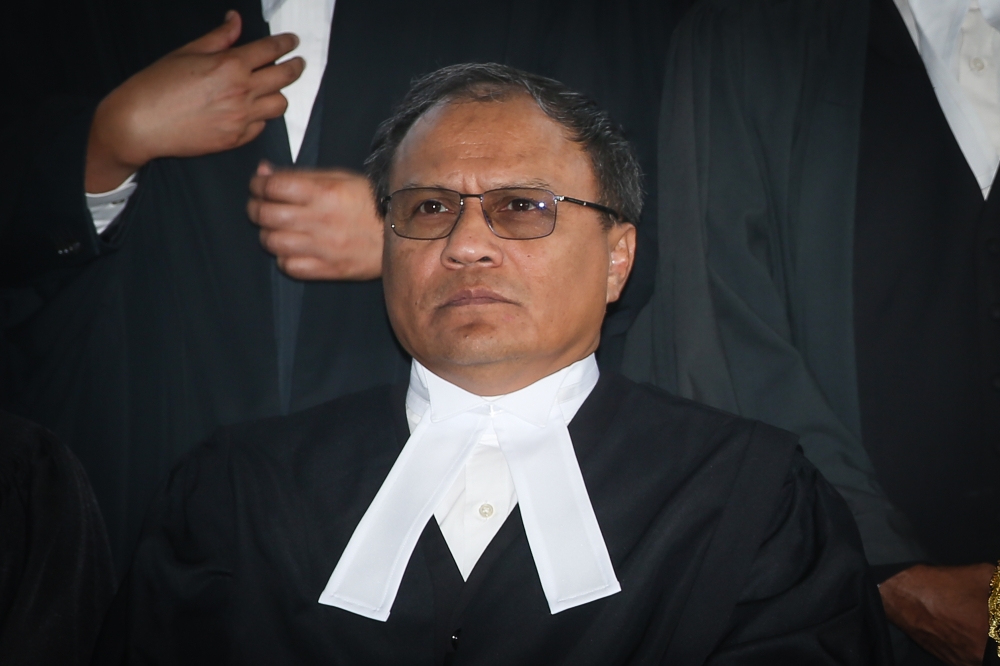JANUARY 9 — At the 20th Professor Emeritus Ahmad Ibrahim Memorial Lecture 2024 at the International Islamic University Malaysia (IIUM) on March 7, 2024, the Honourable Attorney General (AG) delivered a speech entitled “Beyond Prosecution: The Attorney General's Advisory Odyssey”.
The AG started with a history of the office of the AG before embarking on an odyssey of the AG’s advisory roles, befitting the title of his speech.
By the way, the dictionary definition of odyssey is “a long and eventful or adventurous journey or experience”.
It was a long speech indeed – no less than 26 pages.
When it came to the Pardons Board, the AG had the following to say:
“The Federal Constitution also mandates that the Attorney General be a member of the Pardons Board constituted for each States and the Pardons Board for the Federal Territories of Kuala Lumpur, Labuan and Putrajaya [by virtue of Article 42(5) and 42(11) of the Federal Constitution].
“It is widely known that the Pardons Board advises respective Rulers/Yang di-Pertuan Agong in exercising their prerogative powers to grant pardons, reprieves and respites as well as to remit, suspend or commute sentences of offenders when all legal remedies have been exhausted.
“In carrying out these honourable functions, the Attorney General is usually present personally in the proceedings of the Pardons Board. Nonetheless, Article 42(5) of the Federal Constitution allows legal delegation of his functions as a member of the Board to any other person by instrument in writing. This position has been elaborated by the High Court in the case of Mohd Khairul Azam Abdul Aziz v. Lembaga Pengampunan Wilayah Persekutuan & Anor [2021] 1 CLJ 94 (at page 99).
“It must also be highlighted that the role of the Attorney General is not only limited to being present during the proceedings of the Pardons Board. An even more important role of the Attorney General is to give a written opinion on the pardon.
“Article 42(9) of the Federal Constitution clearly provides that before tendering their advice on any matter, a Pardons Board shall consider any written opinion which the Attorney General may have delivered thereon. (Emphasis added)"

According to the AG, the written opinion is “mandatory in nature” in the process of granting pardons. This despite the Court of Appeal in Khairul Azam’s case ruling that the “power to grant pardons can only be exercised by the [Yang di-Pertuan Agong] personally and exclusively and such exercise is not justiciable.”
One may not agree with the AG that “a Pardons Board shall consider any written opinion which the Attorney General may have delivered thereon” and the mandatory nature of the written opinion.
But the AG was entitled to his opinion. Just like any lawyer, or even the man in the street, out there.
No prize for guessing who the AG was then.
Now, if the current AG and his predecessor have kept mum on the issue of royal addendum order relating to former prime minister Najib Razak's house arrest, don’t be surprised or offended or expect better from them.
Najib’s application for judicial review has now proceeded to the substantive stage, where the full merit of the case for judicial review gets ventilated and decided by the High Court.
The AG is the third respondent. The others are the Home Minister (first respondent) the Commissioner General of Prisons (second respondent), the Federal Territories Pardons Board (fourth respondent), the Minister at the Prime Minister's Department (Law and Institutional Reform) (fifth respondent), director-general of the legal affairs at the Prime Minister's Department (sixth respondent) and the Government of Malaysia (seventh respondent).
The matter is now sub judice – that is, before the court.
So, let’s respect the legal process. Stand down and hold our guns.
Do like the AG and his predecessor do. Stop commenting.
* This is the personal opinion of the writer and does not necessarily represent the views of Malay Mail.





















